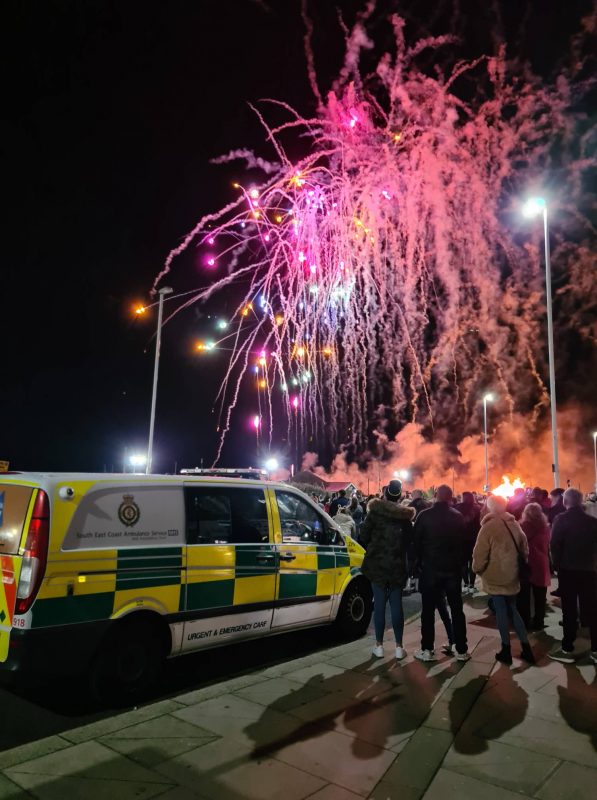 South East Coast Ambulance NHS Foundation Trust, (SECAmb), is urging people to act sensibly and follow safety advice to keep themselves and others safe this bonfire and fireworks season.
South East Coast Ambulance NHS Foundation Trust, (SECAmb), is urging people to act sensibly and follow safety advice to keep themselves and others safe this bonfire and fireworks season.
By celebrating safely people can avoid the need to seek medical advice or call 999.
SECAmb’s Head of Resilience and Specialist Operations Dave Williams said: “Of course, we understand that many people will be out celebrating in the coming days but we also know that we will be called to treat people who have been injured by fireworks and bonfires in incidents which could have been avoided.
“Our staff will be there for those who need us, but people can help us and limit the pressure on our services and the wider NHS, by taking extra care and paying attention around fireworks and bonfires.
“We recommend people attend professional events local to them but if people wish to do their own displays, they should follow the safety instructions to the letter.”
Fireworks and bonfire safety advice:
- Never use petrol or other chemicals on a bonfire
- Keep fireworks in a closed box away from children and use them one at a time
- Read any instructions carefully using a torch if necessary
- Never smoke around fireworks
- Light fireworks at arm’s length with a taper and stand at a safe distance
- Never return to a firework once it has been lit
- Don’t put fireworks in pockets and never throw them
- Follow safety instructions if using sparklers
- Drinking alcohol and lighting fireworks do not mix
- Consider whether younger children would prefer to watch fireworks from inside
More information on firework safety can be found at The Royal Society for the Prevention of Accidents Safer Fireworks website – https://www.rospa.com/home-safety/advice/fireworks-safety
People can make a real difference to someone’s recovery from a burn by remembering to “Cool, Call and Cover”:
- Cool the burn with running cold tap water for 20 minutes and remove all clothing and jewellery (unless it is melted or firmly struck to the wound)
- Call for help – you can call the NHS 111 service for initial advice on treating burns or call your local GP. In an emergency, call 999
- Cover the burn with cling film or a sterile, non-fluffy dressing or cloth. Make sure the patient is kept warm
